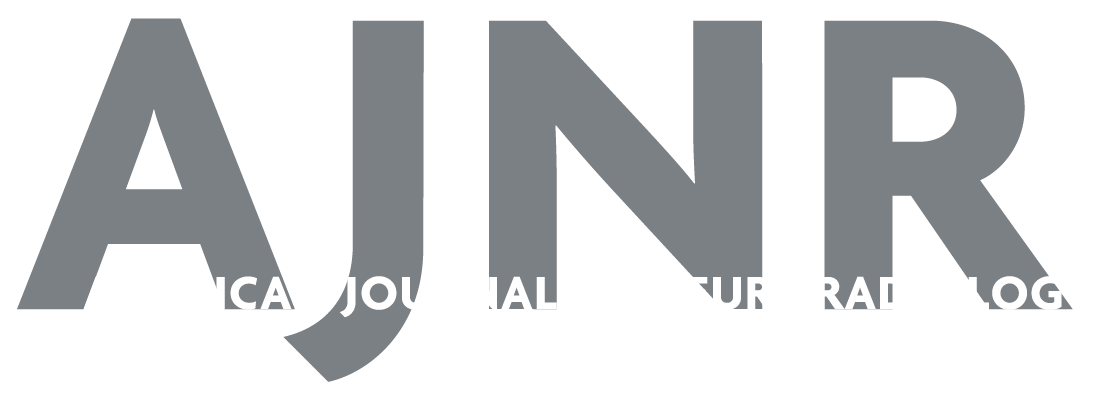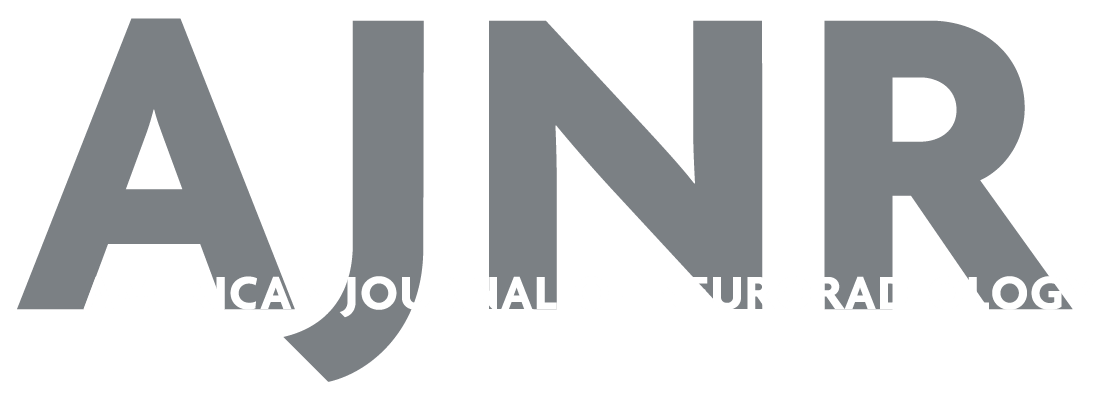Gadolinium is a rare-earth metal of the lanthanide series; it is represented by the symbol Gd, and its atomic number is 64.1,2 At room temperature, Gd is paramagnetic, meaning that it enhances nuclear relaxation rates, making it useful as a contrast agent for MR imaging. In clinical practice, Gd ions are administered to patients in the chelated form as gadolinium-based contrast agents (GBCA).1,2
GBCA were first introduced in the late 1980s. Because of the intrinsic toxicity of Gd salts, initial clinical trials focused on the stability of the complex between the Gd ion and the chelating agent. Early studies pointed out that the stability constant was much higher for macrocyclic (or cryptelates, as they were initially called) than for linear agents.1,3 These concerns never received much attention because all linear and macrocyclic agents appeared to be safe and well-tolerated. Moreover, because macrocyclic GBCA were only available in Europe and not in North America, there appeared to be little scientific incentive to study these concerns further. In fact, GBCA were considered so safe that they were used in large volumes as intra-arterial contrast agents for conventional angiography in patients with iodine allergy.4 Indeed, double-dose GBCA were also commonly applied for gadolinium-enhanced MR angiography studies. These practices all changed in 2006, when a possible causation was identified between GBCA and nephrogenic systemic fibrosis (NSF).5 NSF is characterized by fibrosis of the skin and internal organs, and the symptoms are somewhat reminiscent of scleroderma or scleromyxedema, though the underlying pathology is different. In this respect, credit should be given to Cowper et al6 for a very early and brilliant description of NSF.
The first cases of NSF had already been described earlier, but the possible causation between NSF and GBCA in patients with renal insufficiency was first reported in 2006.5 Next, in 2006, the FDA restricted the use of GBCA in patients with a glomerular filtration rate of <60 mL and <15 mL/min/1.73 m2;7 the cutoff then proposed in 2007 was <30 mL/min/1.72 m2.
Due to these measures, NSF has become very rare, and GBCA were, once again, considered very safe agents in patients with normal renal function.
Brain Gadolinium Deposition
New concerns have been raised in the past 5 years due to mounting evidence of unexpected central nervous system gadolinium deposition after serial administrations of GBCA.8⇓⇓-11 The phenomenon was found to be greater in the dentate nucleus of the cerebellum and the globus pallidus of patients exposed to several doses of GBCA with a linear structure.9,12,13 In fact, GBCA with a macrocyclic structure are known to have higher thermodynamic, kinetic, and conditional stability with respect to the linear ones, and these features have been suggested to mitigate the tendency of deposition.14,15 Given that there are differences in the rates of deposition between linear and macrocyclic agents, slight differences among macrocyclic GBCA have been suggested in studies based on murine models.13,16 Specifically, lower gadolinium concentrations were found after exposure to gadoteridol compared with gadoterate and gadobutrol, especially in the cerebellum, cerebrum, and kidneys.16
Despite the higher degree of gadolinium deposition, nonionic linear GBCA (eg, gadodiamide) showed the lowest rate of immediate allergic adverse events compared with ionic linear and nonionic macrocyclic GBCA.17
On the basis of the global use of GBCA and the concern for gadolinium deposition into brain tissue, different countries have implemented various strategies. The European Union removed the GBCA with a linear structure for general use from the market in 2017 after a 3-year multistage evaluation process.18 In Japan, linear ligands were proposed only as an alternative when macrocyclic agents were contraindicated for clinical reasons.19 In many other countries, such as the United States and China comprising most of the world’s population, instead there have been no formal changes in the regulatory standing of the use of GBCA other than education and notices/warnings of the potential retention with unknown and unclear clinical relevance, if any, together with a call for more research on the issue.
In parallel, imaging scientists from academia and industry have developed new avenues of research, endeavoring to understand the mechanism of the phenomenon and to mitigate gadolinium deposition. Three main topics currently are the following: 1) the validation of alternative contrast molecules not containing gadolinium;20 2) unenhanced MR imaging techniques with quantitative image analyis, aiming to carry gadolinium-analog information;21,22 and 3) synthetic enhanced MR imaging using very low doses of available GBCA.23 These approaches are valid and will take brain MR imaging various steps forward in the years to come. However, the main issue is what to do about brain gadolinium deposition or, even more important, providing answers to what matters most to patients, in terms of clinical consequences on their neurologic function or the clinical effects in other sites such as skin, liver, kidney and bone.
Indeed, what remains to be proved, of great importance to patients, is whether there is any impact on cell/tissue function from the small amounts of gadolinium deposited. The current available data on clinical consequences are mainly based on clinical retrospective studies involving large cohorts (ie, 99,739 patients receiving at least 1 dose of GBCA)24 or those including highly exposed patients (ie, 4 patients receiving at least 50 injections of GBCA).25 These studies failed to demonstrate an association of brain gadolinium deposition with worsening of neurologic or neuropsychological status.24,25 Also, studies applying imaging techniques to evaluate brain microstructural and functional integrity, such as sodium MR imaging,26 resting-state functional MR imaging connectivity,27 and diffusion-weighted imaging,28 showed the absence of tissue changes in the visually hyperintense dentate nuclei on unenhanced T1-weighted images after cumulative doses of GBCA. These findings were in agreement with cellular viability data obtained with histologic studies.13,29 Thus, it seems that the gadolinium deposition observed in the brains of serially injected patients differs from that causing NSF in terms of clinical consequences.
What Matters to Patients
What matters to patients is still the main open question. Patients should be informed that there is no documented clinical risk related to gadolinium deposition in their brains and that there is substantial convergent agreement on this subject among international institutions such as the FDA,30 European Medicines Agency (EMA),18 and American College of Radiology, together with the American Society of Neuroradiology,31 International Society for Magnetic Resonance in Medicine,32 and European Society for Magnetic Resonance in Medicine and Biology–Gadolinium Research & Education Committee.33
Thus, by summarizing the content, interpreting the meaning of the recommendations offered by several authorities, and integrating these into clinical practice, we identified 4 major points: 1) The indication, feasibility, appropriateness, and necessity of GBCA to solve each clinical question must be investigated, controlled, and validated (including a risk-benefit analysis for each patient) by the on-site radiologist or neuroradiologist; 2) each patient should be fully informed on all relevant and updated information about GBCA safety by the on-site radiologist or neuroradiologist before undergoing the MR study; 3) GBCA should be used according to the national regulations on a local basis; and 4) as for the gadolinium deposition in the brain, there is no direct proof of a causal relationship with an impact on neurologic and neurocognitive functions.
While further research on the clinical consequences of gadolinium deposition should be promoted, it remains to be elucidated whether the presence of deposited gadolinium represents a vulnerable condition in patient groups with neurodegeneration either related to aging and/or progression of chronic diseases.
There is evidence of gadolinium deposition, with even higher concentrations, in human tissue beyond the brain, including bone,34 skin,35 and liver.36 The clinical meaning of this deposition is still under scrutiny; however, no direct relationship of causality with severe adverse consequences has been reported to date. Moreover, an increased signal intensity of the anterior pituitary gland, not yet confirmed to be caused by tissue gadolinium deposition, was recently reported in patients who had undergone serial injections of gadodiamide.37
Last, a constellation of symptoms self-reported by patients after exposure to GBCA was identified in 2016 under the suggested definition of gadolinium deposition disease (GDD).38 The symptoms referred to as GDD included headache, brain fog, fatigue, bone pain, central torso pain, subcutaneous tissue thickening, and tightness of hand and foot with a gloves-and-socks pattern. In this respect, a recent study showed no statistically significant different incidence of GDD symptoms between gadodiamide (linear) and gadoterate meglumine (macrocyclic).39 Given the well-known difference in terms of deposition between linear and macrocyclic GBCA, this finding points to a different pathway between exposure to GBCA and reports of symptoms that some think should be attributed to gadolinium exposure.
CONCLUSIONS
Scientifically available information about the safety and stability constant of the compounds, together with clinical, functional, and structural data after serial GBCA injections, as well as technical development geared to dose reduction (or altogether elimination of GBCA if proved to be unnecessary in specific clinical scenarios), must be taken into account and integrated to provide an answer as to what matters most to patients.
Even if what really counts is whether retained gadolinium in the brain and body is harmful, and, to date, no proved causation with permanent severe adverse effects has been reported in patients, we should keep investigating the topic, and if the current standard practice can be outperformed using different strategies, we should definitely go for it.
Footnotes
Disclosures: Alex Rovira—UNRELATED: Board Membership: Bayer AG, Biogen, Novartis, Icometrix, Roche; Payment for Lectures Including Service on Speakers Bureaus: Sanofi Genzyme, Merck Serono, Teva Pharmaceutical Industries Ltd, Novartis, Roche, Biogen; Payment for Development of Educational Presentations, money was paid to defray expenses for travel, lodging and registration: Sanofi Genzyme, Merck Serono, Novartis, Roche, Biogen. Paul M. Parizel—Other Relationships: I have, in the past, participated as a speaker in symposia and courses that were cosponosored by the industry (Bracco, Guerbet, Schering, GE Healthcare), but not in the past 3 years, and never in relationship to the topic of this editorial.
References
- © 2020 by American Journal of Neuroradiology












